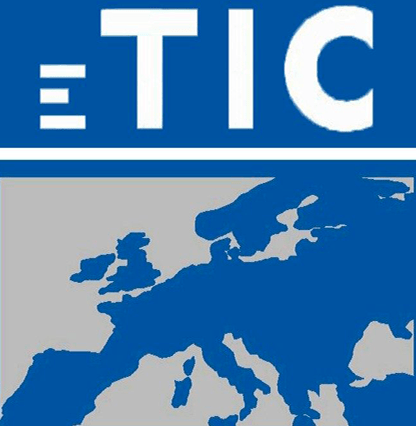Chapter I: Equal opportunities and access to the labour market
1. Education, training and life-long learning Everyone has the right to quality and inclusive education, training and life-long learning in order to maintain and acquire skills that enable them to participate fully in society and manage successfully transitions in the labour market.
2. Gender equality Equality of treatment and opportunities between women and men must be ensured and fostered in all areas, including regarding participation in the labour market, terms and conditions of employment and career progression. Women and men have the right to equal pay for work of equal value.
3. Equal opportunities Regardless of gender, racial or ethnic origin, religion or belief, disability, age or sexual orientation, everyone has the right to equal treatment and opportunities regarding employment, social protection, education, and access to goods and services available to the public. Equal opportunities of under-represented groups shall be fostered.
4. Active support to employment Everyone has the right to timely and tailor-made assistance to improve employment or self-employment prospects. This includes the right to receive support for job search, training and re-qualification. Everyone has the right to transfer social protection and training entitlements during professional transitions. Young people have the right to continued education, apprenticeship, traineeship or a job offer of good standing within 4 months of becoming unemployed or leaving education. People unemployed have the right to personalised, continuous and consistent support. The long-term unemployed have the right to an in-depth individual assessment at the latest at 18 months of unemployment.
Chapter II: Fair working conditions
5. Secure and adaptable employment Regardless of the type and duration of the employment relationship, workers have the right to fair and equal treatment regarding working conditions, access to social protection and training. The transition towards open-ended forms of employment shall be fostered. In accordance with legislation and collective agreements, the necessary flexibility for employers to adapt swiftly to changes in the economic context shall be ensured. Innovative forms of work that ensure quality working conditions shall be fostered. Entrepreneurship and self-employment shall be encouraged. Occupational mobility shall be facilitated. Employment relationships that lead to precarious working conditions shall be prevented, including by prohibiting abuse of atypical contracts. Any probation period should be of reasonable duration.
6. Wages Workers have the right to fair wages that provide for a decent standard of living. Adequate minimum wages shall be ensured, in a way that provide for the satisfaction of the needs of the worker and his / her family in the light of national economic and social conditions, whilst safeguarding access to employment and incentives to seek work. In-work poverty shall be prevented. All wages shall be set in a transparent and predictable way according to national practices and respecting the autonomy of the social partners.
7. Information about employment conditions and protection in case of dismissals Workers have the right to be informed in writing at the start of employment about their rights and obligations resulting from the employment relationship, including on probation period. Prior to any dismissal, workers have the right to be informed of the reasons and be granted a reasonable period of notice. They have the right to access to effective and impartial dispute resolution and, in case of unjustified dismissal, a right to redress, including adequate compensation.
8. Social dialogue and involvement of workers The social partners shall be consulted on the design and implementation of economic, employment and social policies according to national practices. They shall be encouraged to negotiate and conclude collective agreements in matters relevant to them, while respecting their autonomy and the right to collective action. Where appropriate, agreements concluded between the social partners shall be implemented at the level of the Union and its Member States. Workers or their representatives have the right to be informed and consulted in good time on matters relevant to them, in particular on the transfer, restructuring and merger of undertakings and on collective redundancies. Support for increased capacity of social partners to promote social dialogue shall be encouraged.
9. Work-life balance Parents and people with caring responsibilities have the right to suitable leave, flexible working arrangements and access to care services. Women and men shall have equal access to special leaves of absence in order to fulfil their caring responsibilities and be encouraged to use them in a balanced way.
10. Environnement de travail sain, sûr et adapté, et protection des données10. Healthy, safe and well-adapted work environment and data protection Workers have the right to a high level of protection of their health and safety at work. Workers have the right to a working environment adapted to their professional needs and which enables them to prolong their participation in the labour market. Workers have the right to have their personal data protected in the employment context. Actions à venir de la Commission: nouvelle stratégie en matière de sécurité et de santé au travail et initiative visant à améliorer les conditions de travail dans le cadre du travail de plateforme.
Chapter III: Social protection and inclusion
11. Childcare and support to children Children have the right to affordable early childhood education and care of good quality. Children have the right to protection from poverty. Children from disadvantaged backgrounds have the right to specific measures to enhance equal opportunities.
13. Unemployment benefits The unemployed have the right to adequate activation support from public employment services to (re)integrate in the labour market and adequate unemployment benefits of reasonable duration, in line with their contributions and national eligibility rules. Such benefits shall not constitute a disincentive for a quick return to employment.
13. Prestations de chômage. Les chômeurs ont droit à un soutien à l’activation adéquat des services publics de l’emploi pour leur (ré)insertion sur le marché du travail, ainsi qu’à des prestations de chômage adéquates pendant une durée raisonnable, en fonction de leurs cotisations et des règles nationales d’admissibilité. Ces prestations ne doivent pas avoir d’effet dissuasif par rapport à un retour rapide à l’emploi.
14. Minimum income Everyone lacking sufficient resources has the right to adequate minimum income benefits ensuring a life in dignity at all stages of life, and effective access to enabling goods and services. For those who can work, minimum income benefits should be combined with incentives to (re)integrate into the labour market.
15. Old age income and pensions Workers and the self-employed in retirement have the right to a pension commensurate to their contributions and ensuring an adequate income. Women and men shall have equal opportunities to acquire pension rights. Everyone in old age has the right to resources that ensure living in dignity.
16. Health care Everyone has the right to timely access to affordable, preventive and curative health care of good quality.
17. Inclusion of people with disabilities People with disabilities have the right to income support that ensures living in dignity, services that enable them to participate in the labour market and in society, and a work environment adapted to their needs.
18. Long-term care Everyone has the right to affordable long-term care services of good quality, in particular home-care and community-based services.
19. Housing and assistance for the homeless a. Access to social housing or housing assistance of good quality shall be provided for those in need. b. Vulnerable people have the right to appropriate assistance and protection against forced eviction. c. Adequate shelter and services shall be provided to the homeless in order to promote their social inclusion.
20. Accès aux services essentiels. Toute personne a le droit d’accéder à des services essentiels de qualité, y compris l’eau, l’assainissement, l’énergie, les transports, les services financiers et les communications numériques. Les personnes dans le besoin doivent bénéficier d’un soutien leur permettant d’accéder à ces services.




